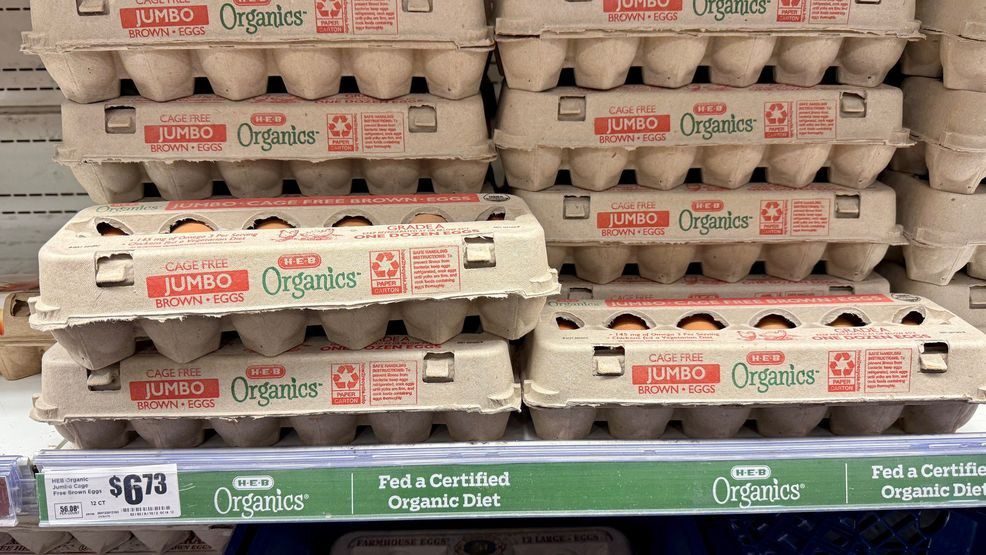
AUSTIN, Texas — Egg prices are surging once again, prompting some grocery retailers in Texas to impose purchase limits on eggs. In January alone, egg prices soared by 15% and continue to trend upwards. This increase highlights the significant impact of the avian flu outbreak.
In Texas, the average cost for a dozen eggs is currently $5.43. Nationwide, six states, including Florida, California, and Arizona, report prices exceeding $6 per carton.
“The upward pressure on prices is likely to persist, primarily due to the ongoing decline in bird populations,” stated Dr. David Anderson, a Professor of Agricultural Economics at Texas A&M University.
Last year, bird flu resulted in the loss of over 40 million egg-laying birds, including both chickens and ducks. Professor Anderson notes that besides the impact of the virus, the approaching Easter holiday could temporarily drive prices even higher and reduce supplies.
“Each year, we see an increase in demand for Easter eggs around the holiday season. After Easter, we typically observe a decline in this holiday-related demand, which may alleviate some of the price pressure,” Anderson explained.
In the meantime, consumers are hoping for relief from the current egg shortages and soaring prices.
“Is this affecting your budget?” CBS Austin Reporter Bettie Cross inquired.
“Definitely, and I think the panic buying during times like this only worsens the shortage,” responded a shopper in an Austin grocery store.
The trajectory of egg prices will largely depend on farmers and producers and how swiftly their flocks can recover from the avian flu situation. Typically, it takes about six months for chicks to mature and begin laying eggs.
“Yes, it takes around six months for a bird to start producing eggs. This indicates that recovery will take some time,” said Anderson.
Anderson suggests that we might see a reduction in prices by the end of the year, assuming that Texas and the United States do not face another significant avian flu outbreak.









